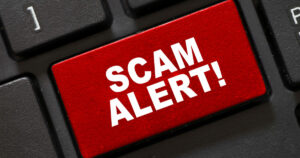Marshall Fires – Avoid Scams

If you get a phone call about an insurance claim or policy, don’t give out any personal information or agree to any payment until you can independently verify that the call is legitimate. If the caller says they’re from your insurance company, hang up and contact your agent or the company directly using the number on your account statement.
Contractors and home improvement companies may also call claiming to be partners with your insurance provider. Never give policy numbers, coverage details, or other personal information out to companies with whom you have not entered into a contract. Verify that any contractor you are considering is licensed and carries adequate insurance. Many states have online databases you can check.
Residents should be aware of scammers posing as representatives of disaster relief or charitable organizations. There are several steps you can take to protect yourself from this type of fraud:
Be vigilant and pay attention. When sharing personal information, be careful. The City is hearing reports of phishing/spearphishing scams directly with residents and on social media.
Do not open suspicious emails. If you receive a suspicious email , do not click on any links or open any attachments. Scammers regularly use email for phishing attacks and to spread malware.
Donate to trusted, well-known charities. Beware of scammers who create fake charities during natural disasters. Always verify a charity’s legitimacy through its official website. If you have doubts, you can check with Better Business Bureau’s Wise Giving Alliance, Charity Navigator, Charity Watch, or GuideStar. You can also check with the National Association of State Charity Officials whether charities must be registered in your state and if the charity contacting you is on file with your state.
Verify all phone numbers for charities. If you need to contact a charity by phone, check the charity’s official website to see if the number you have is legitimate. If you’re using text-to-donate, check with the charity to ensure the number is legitimate before donating.
Verify information in social media posts. Double-check any solicitation for charitable donations before you give. Crowd-funding websites often host individual requests for help but they are not always vetted by the site or other sources.
To report suspected fraud, call the FEMA Disaster Fraud Hotline toll free at 1-866-720-5721. If you need to report other fraudulent activities during or following a natural disaster, please notify FEMA at 1-866-720-5721 or disaster@leo.gov.
Article originally posted on the Louisville, CO website: https://www.louisvilleco.gov/living-in-louisville/residents/marshall-fire/-utm_medium-email/-utm_source-govdelivery







